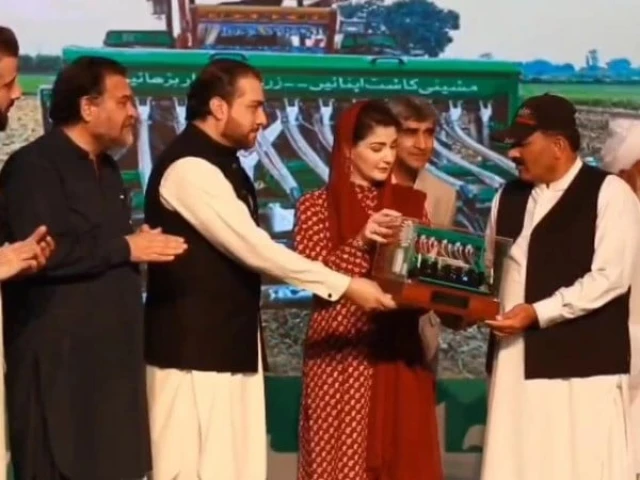Punjab farmers earn millions in months with super seeder technology
CM Punjab expressed satisfaction with results, calling agricultural mechanisation "just the beginning" of reforms

The use of super seeders in Punjab’s wheat cultivation has produced remarkable results, with 1,000 farmers collectively earning Rs 5.79 billion in just a few months, Express News reported.
The innovative farming technique has saved 330 tonnes of wheat seed across the province while reducing diesel consumption by 18.7 million litres compared to traditional methods.
By adopting super seeders, farmers saved Rs 4.86 billion on diesel costs alone. The cost of wheat sowing was reduced by Rs 3,666 per acre, significantly cutting expenses for cultivators.
A total of 7,805 farmers across 31 districts planted wheat on 110,014 acres using super seeders. Of these, 68,185 acres were cultivated through rental services. An overwhelming 93% of farmers rated the wheat growth achieved with super seeders as superior to conventional methods.
Farmers reported significant advantages, noting that super seeders improved soil fertility and reduced sowing time. "Using super seeders has delivered excellent results," one farmer said. "It is far better than traditional sowing techniques and helps maintain soil productivity."
Many farmers pledged to continue using the technology, citing its efficiency. The machines allow wheat sowing on one acre in just an hour, saving both time and resources.
Punjab Chief Minister Maryam Nawaz Sharif expressed satisfaction with the results, calling agricultural mechanisation "just the beginning" of broader reforms.
"Super seeders are turning the dream of modernising agriculture into reality," she said. "Lower labour costs, time savings, and fuel efficiency have provided farmers with significant relief."
She reaffirmed her administration’s commitment to making Punjab a hub of advanced agricultural technology, reducing production costs, and ensuring higher profits for farmers.





















COMMENTS (1)
Comments are moderated and generally will be posted if they are on-topic and not abusive.
For more information, please see our Comments FAQ